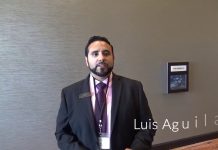Congratulations! You’ve just (finally) passed that state exam and are ready to begin your career as a real estate agent… or are you? The stress of the examination process can leave you feeling a little lost and wondering if you’ve made the right decision.
Don’t worry; the Harris Real Estate University team understands the struggle. We’re real estate professionals, too, with decades of experience. While being an agent may become your home base and passion, you should know there are other career options available now that you are licensed.
Let’s talk about what a real estate license actually is, how you get one, and what you can do with it once it is finally yours.
What Is a Real Estate License?
Your real estate license is more than just a certification that you can work for a broker and earn a commission. It’s the key to earning your living as a professional in the real estate industry.
Specifically, a real estate license gives you the legal authority to represent a buyer and/or seller in the purchase and/or sale of real property.
How Do You Get a Real Estate License?
If you’ve already gotten yours, you can skip ahead. If not, check with your local board of realtors to determine the qualifications you’ll need prior to taking your state exam. Each state maintains a licensing system that requires a certain number of hours of education prior to examination.
You’ll then need to pay for and take your state exam and pass it, to become officially licensed. Your license is only good in your state. However, some states have a reciprocity agreement that allows you to transfer your license to another state after taking a state-specific portion of the new state’s exam.
How Do You Maintain Your License?
Each year, you’ll need to renew your license. Each state has specific requirements for license renewal that usually involve continuing education hours, fees, and possibly additional testing.
Are Real Estate Licenses Hard To Obtain?
This is highly a matter of opinion, but the general consensus is…yes! State exams can be difficult, but not impossible. If you work hard and study adequately, your state examination can be easily passed.
Numerous resources are available to help you prepare for your exam. If you’re dedicated to becoming a real estate agent, finding time to prepare will be an easy task.
What You Can Do With Your License
A real estate license is your ticket into the world of real property. You may not realize it, but there are numerous career options for individuals who hold a real estate license.
Real Estate Agent
You already knew this one, and you probably took the exam so you could become a real estate agent.
Being a real estate agent means you can represent both a buyer and a seller in a real estate transaction. If you have the opportunity, you can be a dual agent and represent both. You’ll work for a broker or brokerage while helping your clients in their real estate transactions.
Real estate agents can assist with residential and commercial sales for developed and undeveloped property and can also help with rental agreements and transactions.
Become a REALTORⓇ
Once you’ve decided that being a real estate agent is your calling, becoming a REALTORⓇ is the logical next step. Becoming a REALTORⓇ means you’ve joined the National Association of Realtors, the largest trade group in the country.
Your affiliation as a REALTORⓇ means your clients can trust that you hold yourself to the highest standards of professionalism and service. Your community will know that you maintain a dedication to the highest ethical standards by adhering to the REALTORⓇ code of ethics.
Becoming a REALTORⓇ is an investment that adds value to your career as a real estate agent.
Become a Broker
If you’ve always dreamed of being your own boss, you can do it with a brokerage license. A broker is able to work independently. In other words, you can become a “free agent” or a real estate agent who doesn’t work for a brokerage.
If you become a broker, you can also employ other real estate agents who work for you. To become a broker, you’ll need to get a state-issued brokerage certification after you’ve received your real estate license.
Explore Property Appraising
If you love working alone, becoming a property appraiser is an unexpected way you can use your real estate license for a career that doesn’t involve a lot of client interaction. Property appraisers ascribe property value for homes and land that are pending sale or refinance.
You’ll need to also acquire a property appraiser license from your home state. You’ll have the same type of maintenance requirements for this license as you do your real estate license.
Start Lending Money
Mortgage brokers originate loans for the purchase of new properties. Your real estate license will help you better understand the needs of your clients as a mortgage broker and help you better serve them.
Additionally, mortgage brokers who hold a real estate license will be able to assist more during a real estate transaction. They can help communicate with the other parties involved in a transaction, like other realtors and attorneys.
Clear Title
Anytime real estate passes from one entity to another, the title to the property must be cleared of all encumbrances (like liens or violations), and the proper instruments must be recorded with the county to transfer ownership.
Title agents have the job of ensuring that the purchase and sale process goes smoothly, that money is transferred correctly, and that the contract for purchase and sale is followed. These agents ensure that the deed, mortgage, and any other recorded documents are recorded in the correct order.
Invest
You don’t have to use your real estate license to earn a living if you don’t want to. You can use your license to educate yourself on how to invest in property. The first step in learning to “flip” properties like a professional is getting your real estate license.
With a real estate license, you’ll have the education you need to avoid bad transactions.
Become a Property Manager
Properties like apartment complexes, assisted living facilities, and commercially leased buildings, and strip malls are managed by a central property manager. If you don’t want to work for a commission but still love interacting with people, becoming a property manager is a great way to earn a stable income and still work with the public.
How To Learn More
Once you stop learning, you stop earning. Now that you’ve got your real estate license, find out how to maximize your earning potential and generate new streams of income with professional guidance.
Harris Real Estate University has the solution. Educate yourself with the latest real estate trends and information by listening to Tim and Julie Harris’s podcast, the most popular real estate podcast for professionals who want to increase their potential and deepen their understanding of all things real estate.
Want to dive deeper? Our premier coaching program offers real-time coaching phone calls, access to hundreds of past coaching calls, and a massive library of real estate-related education you simply can’t find anywhere else.
Our program is based on four decades of real-life real estate experience and documented success. We offer real solutions and practical techniques, not canned motivational pep talks.
Ready, Set, Grow!
Your real estate license is in your pocket, and you’ve got a plethora of career options from which to choose. Let the team at Harris Real Estate University guide you on your path. Our community is filled with like-minded individuals who share your passion for real estate and your drive for excellence.
Sources:
Requirements to Apply for a Real Estate Salesperson License | California Department of Real Estate
Homes for Sale, Mortgage Rates, Virtual Tours & Rentals | realtor.com®
National Association of Real Estate Appraisers
































